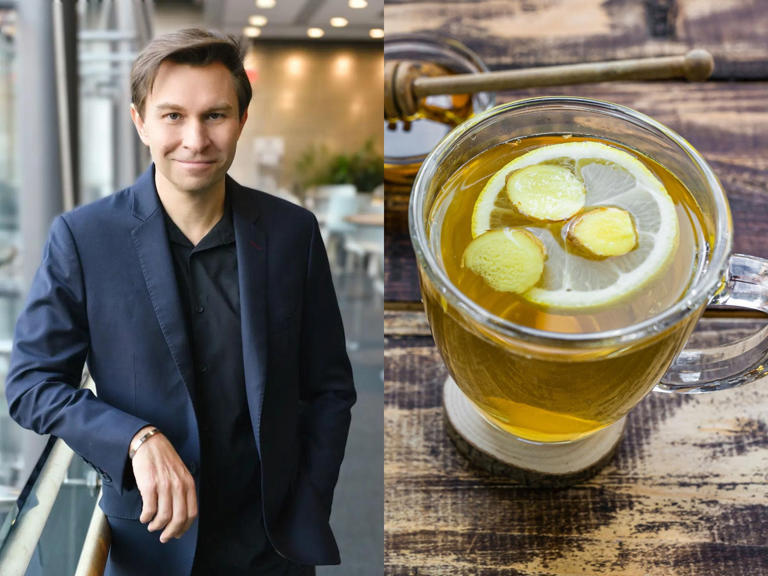Secrets of Eternal Youth: 53-Year-Old Longevity Researcher Reveals His Morning Routine that Slashes ‘Biological Age’ by 10 Years

Renowned biologist and anti-aging researcher David Sinclair has captured attention with claims that, despite being nearly 54 years old, his “biological age” is a remarkable 10 years younger. Sinclair attributes this phenomenon to a series of lifestyle changes he has adopted over the years, offering a glimpse into his intriguing morning routine.
Beginning his day with a practice called oil pulling, Sinclair rinses his mouth with coconut oil to enhance his oral microbiome. Though this traditional Indian folk remedy has its proponents, scientific evidence supporting its purported benefits is limited, and the American Dental Association does not endorse it.
Next on Sinclair’s morning agenda is a soothing cup of hot water with lemon. While some claim that this concoction can improve complexion, reduce bloating, or aid in detoxification, experts state that there is insufficient scientific backing for such assertions. Nevertheless, staying hydrated is always advantageous, and lemon water poses no harm.
Sinclair then proceeds to brush his teeth with “non-toxic” toothpaste, without disclosing specific details about the product. Natural toothpastes, devoid of artificial additives and fluoride, have gained popularity among those seeking more holistic oral care. However, it’s important to note that fluoride is widely recognized for its ability to combat cavities, strengthen enamel, and prevent tooth decay, as recommended by the ADA.
For breakfast, Sinclair enjoys a small portion of yogurt infused with polyphenols. He particularly highlights resveratrol, a compound found in red wine renowned for its potential anti-inflammatory, anti-cancer, heart health, and brain health properties. While resveratrol has shown promise in extending the lifespan of certain organisms, opinions differ on its effectiveness in human consumption. Some experts remain skeptical, emphasizing the need for further research.
Green matcha tea follows, offering a rich source of healthful polyphenols, including ECGC catechins known for their cancer-preventative properties. The potential benefits of green tea consumption, such as reducing the risk of stomach cancer, have been explored in past studies. Matcha, with its abundance of antioxidants, can aid in reducing inflammation—a benefit that has been highlighted by experts.
Continuing his health-conscious routine, Sinclair embraces the concept of a standing desk, which he employs both at Harvard and in his home office. Recognizing the detrimental effects of prolonged sitting, he aims to minimize sedentary behavior by standing throughout the day, accompanied by regular intake of water and hot tea. Standing not only burns more calories but also improves glucose metabolism, muscle contractions, and blood circulation, reducing the risk of various health issues associated with prolonged sitting.
While Sinclair’s routine embodies his commitment to overall well-being, it’s essential to approach each element with a critical eye, considering the varying scientific perspectives. Further research is required to solidify the efficacy of certain practices. Nonetheless, his dedication to exploring innovative approaches to aging offers valuable insights into the quest for prolonged vitality.
As the world becomes increasingly fascinated by the mysteries of aging, Sinclair’s morning routine provides a glimpse into a life fueled by a scientific pursuit of longevity. It serves as a reminder that embracing holistic lifestyle changes may hold the key to unlocking the secrets of aging gracefully and living a fuller, healthier life.


